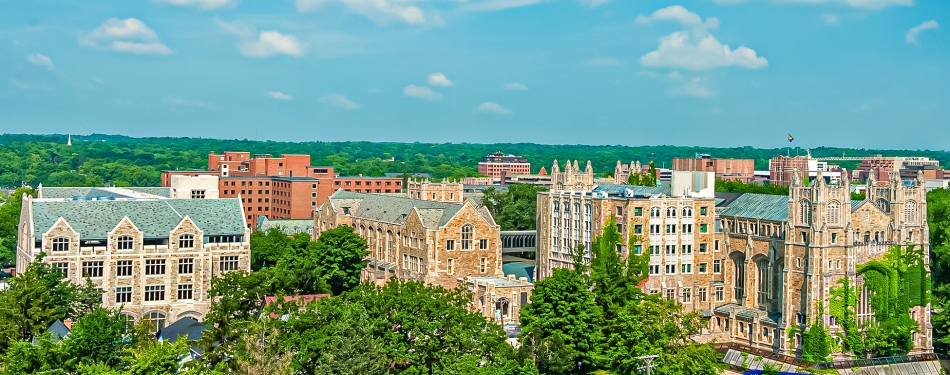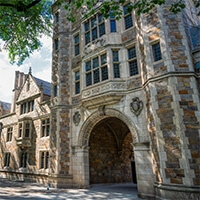A message from Dean Mark D. West
Dear Michigan Law Community,
After talking with students, faculty, alumni, and staff, I have decided that it no longer makes sense for Michigan Law to participate in the U.S. News & World Report law school rankings process. As a public institution, serving the public interest has always been central to our mission. Over time, I increasingly have come to believe that the U.S. News law school rankings no longer serve the public interest. Although we have had sustained discussion for years within the Quad about parting ways with the rankings, it would have been difficult for us to take this step alone. I applaud Yale Law School (and Dean Heather Gerken, Michigan Law, ’94) for being first mover and share the concerns expressed by Yale and other schools that have withdrawn.
Some history is instructive for why it is appropriate to make this decision now. At its inception, U.S. News law school rankings provided valuable information for consumers—most importantly, students—that had not previously been widely available. This is no longer true; many more consumer information resources are available today. Following the Great Recession of 2008, for example, the American Bar Association increased the amount of consumer information data it requires law schools to collect and report. This information dramatically and admirably increases transparency: It is available for free, and reflects informed thinking about what information is most important and relevant. In contrast, in recent years U.S. News has initiated a number of changes that reflect a lack of understanding about how law schools operate that add up to questions about the ability of U.S. News to continue to serve as a large-scale arbiter of higher education information. Finally, U.S. News rankings are opaque in both their methodology and content (much of the data is not publicly revealed), and unavailable to those uninterested in paying to scrutinize them. Despite the availability of these other more transparent sources, U.S. News law school rankings have maintained an outsized role in the perceptions many have of law school quality.
The rankings process is complex, with features and quirks too detailed to wade through here, but the basics are as follows. U.S. News collects information from law schools related to a variety of very specific metrics that it considers important. The most heavily weighted component of the rankings comes from academic opinion polls: U.S. News surveys select administrators and faculty members at every law school to collect their opinions about their perceptions of the reputation of every other law school. The collected information might be interesting, but it is not based on a rigorous survey instrument, and even if it were, it should not guide decision making for prospective students (or anyone else). Nonetheless, law schools to a greater or lesser degree sometimes are forced to consider the effect of any changes in their programs on their rank. While Michigan has consistently resisted the pressure to take actions that are contrary to our mission, the demands of the U.S. News algorithm always lurk in the background.
The opacity of the algorithm, to both law schools and consumers, also concerns me. Changes to the formula often are announced after the fact, or simply never explained at all. What we do know about the algorithm is that much of it is unrelated to the needs of future students, which of course are heterogeneous. Moreover, U.S. News neither vets nor authenticates the data. This situation presents, at best, inequitable presentation of data and at worst, an unregulated opportunity for manipulation. In addition, if a law school wants to see the full set of aggregate data that others submit, it must pay U.S. News for access. The staff time required to prepare our submission also comes at a cost—both financial and of opportunity—that no public institution should shoulder in the service of a revenue-generating third-party endeavor.
I recognize, of course, that U.S. News and other organizations will continue to rank law schools, and that our rank may fluctuate based on differences in methodologies. No matter. We will continue to focus on providing the best legal education possible and supporting our community—including especially the people-centric factors that rankings struggle to measure. We do not anticipate that this decision will result in any changes to the way we conduct admissions and financial aid that would be adverse to our students, current and prospective. We remain committed to supporting our students’ career goals—and especially the goals of our students who pursue public interest careers—through investments in post-graduate fellowships and loan-repayment assistance. We also commit to continue making robust, meaningful information available to help prospective students as they decide whether to attend Michigan Law.
Sincerely,
Mark D. West
David A. Breach Dean of Law and Nippon Life Professor of Law







